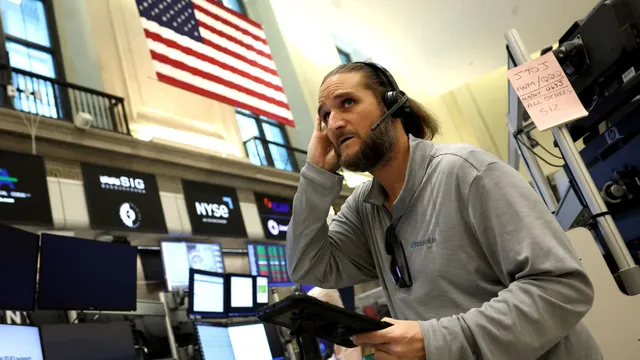
U.S. Treasury yields plunge as markets close early for Jimmy Carter
2025-01-09 15:56- January 9, 2025, was designated a national day of mourning in the U.S. for former President Jimmy Carter.
- Mail delivery services were suspended, and stock markets were closed in tribute to Carter.
- Carter's passing led to widespread reflection on his legacy and contributions, illustrating the respect held for his public service.
Express your sentiment!
Insights
On January 9, 2025, the United States observed a national day of mourning for former President Jimmy Carter, who passed away in late December 2024 at the age of 100. In honor of Carter, President Joe Biden declared this day an official day of observance, urging Americans to reflect and gather in their places of worship to pay tribute to the 39th president. Consequently, the United States Postal Service announced the suspension of all mail delivery services and the closure of postal offices, although limited package deliveries were still planned to ensure operational continuity. Additionally, major stock exchanges, including the New York Stock Exchange and Nasdaq, were closed, marking a rare occurrence reminiscent of past U.S. presidential funerals. This closure had historical significance, with such honors last extended after the death of President George H.W. Bush in 2018. The act was largely viewed as a respectful gesture, recognizing Carter's legacy in American history, which includes his post-presidency humanitarian efforts and promotion of democracy. Many government agencies and the Supreme Court were also closed on that day, though some essential services remained operational due to national security concerns. The observance highlighted the impact of Carter's life and presidency on American society, as citizens were encouraged to remember his achievements and contributions during this reflective period.
Contexts
The historical significance of U.S. presidential funeral observances is profound, reflecting the evolving nature of American identity, values, and the nation's respect for its leaders. Presidential funerals have served as pivotal moments in American history, marking the passing of figures who have shaped the country’s trajectory. From the funerals of George Washington, which set precedence for national mourning, to the recent observances of figures like George H.W. Bush, these rituals not only honor the deceased but also reinforce the bonds of unity and grief among the populace. They represent a collective recognition of the sacrifices and contributions made by these leaders, inviting reflections on their legacies and the broader context of their administrations, and instilling a sense of continuity in the national narrative. Moreover, the traditions surrounding presidential funerals have evolved over time, adapting to changing social norms, technological advancements, and contemporary political climates. The observances often include a mixture of solemn ceremonies, public viewing, and military honors, showcasing the respect afforded to the office of the presidency. They also reveal the societal values of the time and reflect how Americans choose to remember their leaders. For instance, the public mourning witnessed during the funeral of Abraham Lincoln was a moment of national catharsis following the Civil War, emphasizing themes of loss, sacrifice, and healing that resonated deeply with Americans of that era. In addition to honoring individual presidents, these funerals often serve as arenas for national reflection on issues such as leadership, governance, and the state of the union. Observances frequently attract international attention and dignitaries, showcasing the United States' standing on the global stage at the time, as seen during the funerals of Ronald Reagan and John F. Kennedy. Such events become opportunities to reinforce U.S. values and traditions, offering insight into how the nation perceives its past, present, and future. They can also ignite discussions about the political climate and the direction of the country, fostering dialogues around the ideals that these leaders embodied. Ultimately, U.S. presidential funeral observances encapsulate a unique convergence of personal grief and national identity, allowing citizens to wrestle with the implications of leadership and the legacy of those who have held the highest office in the land. As society continues to evolve, so too will the customs surrounding these observances, but their core significance as markers of respect, reflection, and unity in the face of loss remains enduringly relevant. Through these ceremonies, the nation not only commemorates the life of the deceased leader but also reaffirms its collective values and aspirations, making presidential funerals a vital component of America's historical and cultural fabric.